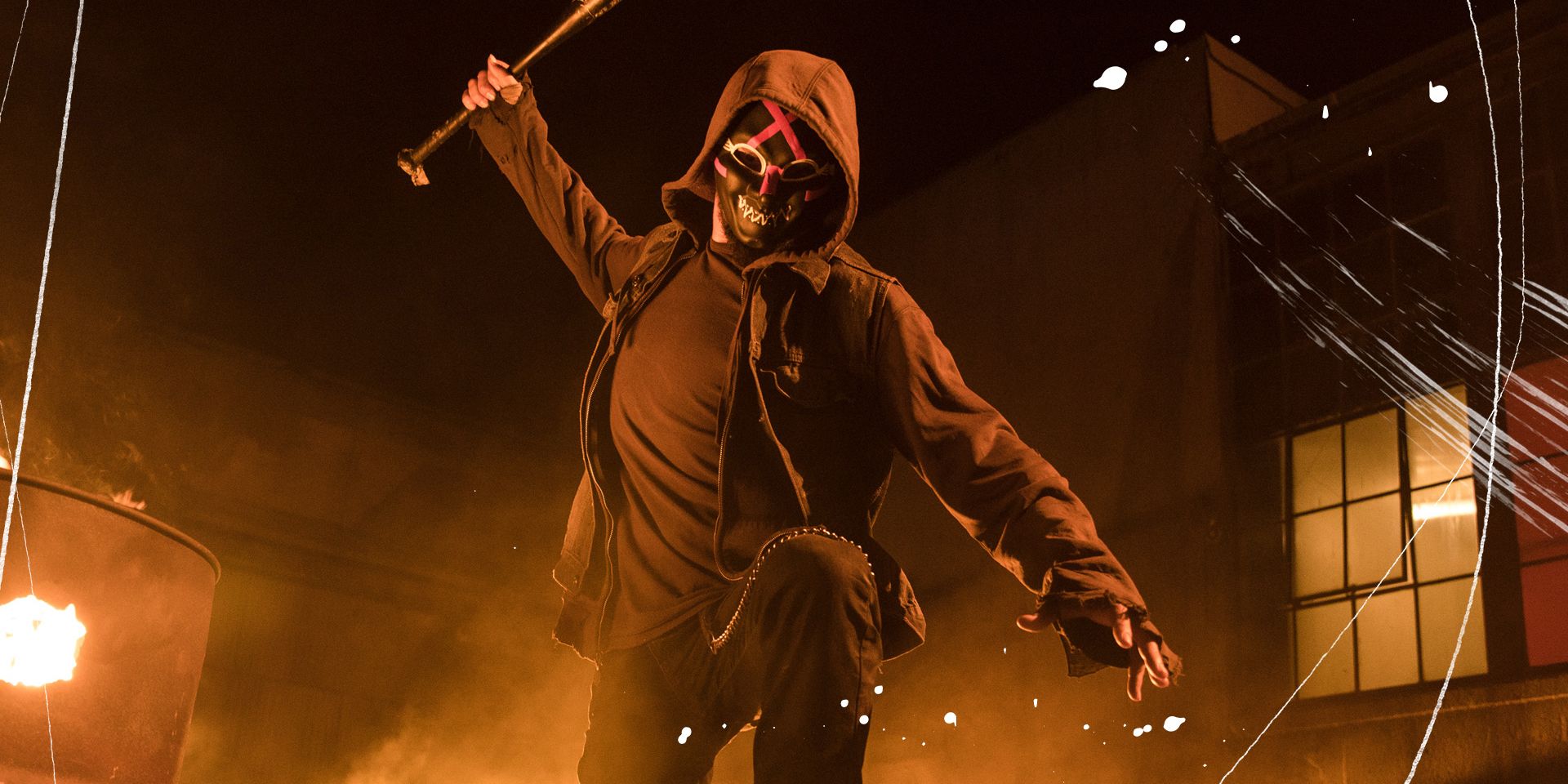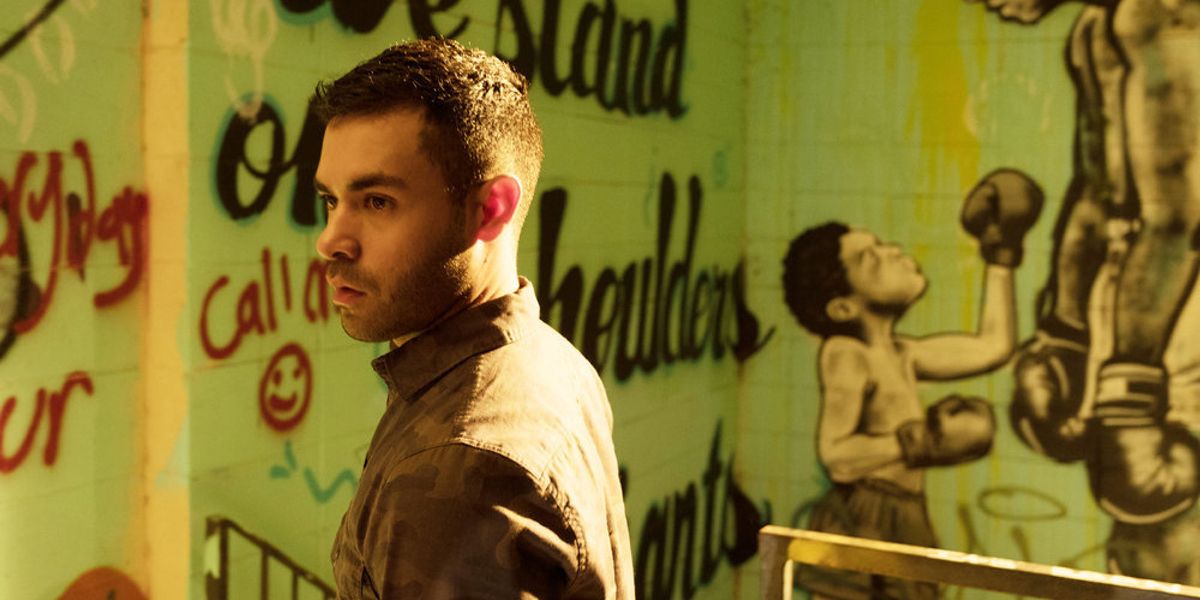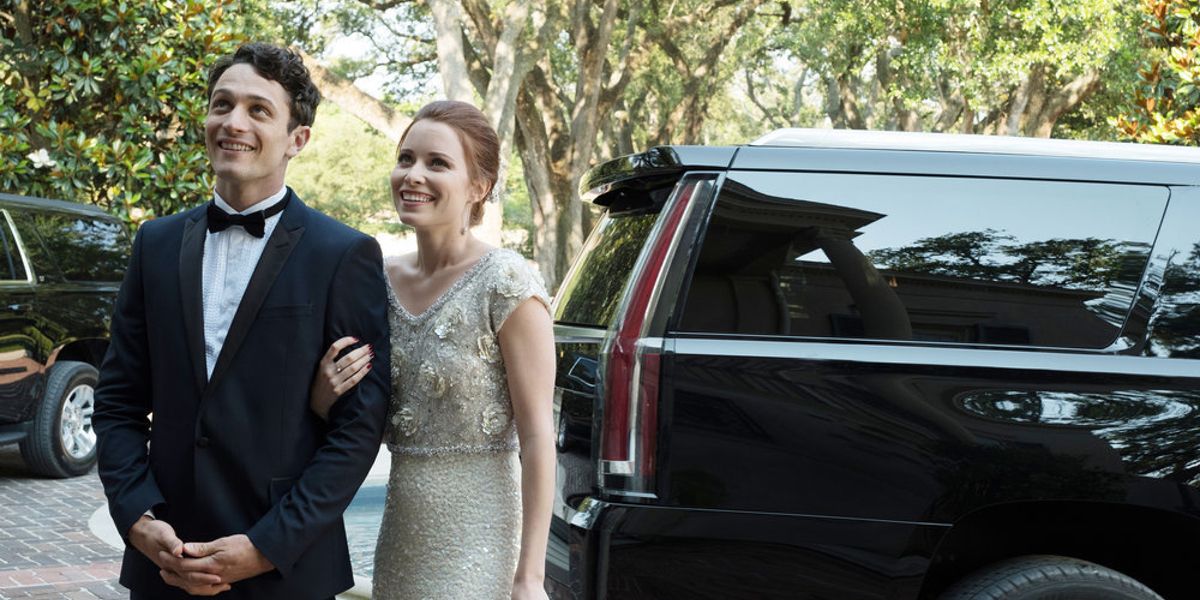Though occasionally fun, USA’s The Purge TV series is at best a happily generic expansion of the popular film franchise and at worst a total missed opportunity. When the series was first announced, creators discussed storylines involving disparate groups of Americans who weren't Purging, presumably as they worked to prepare for and survive the annual event. That sounded risky but appealing, as though the entire series would be spent slowly building expectations of a hellish nightmare. As the series premiere reveals, however, that isn’t necessarily what the show is aiming for. What could have been a bold swing for the fences and a chance to excavate more from an already heavily mined conceit, is instead a sometimes-entertaining but mostly unremarkable television event.
The series’ pre-existing mythology positions it for a more in-depth examination of its circumstances, as they pertains to The New Founding Fathers and the impact the party has had on this fictionalized version of the U.S. and its dependent populations. Longform storytelling would seemingly be the ideal place to delve further into not only the themes of the franchise, but in the actual world that’s been built around them. As it stands, though, The Purge TV series is more focused on getting to the actual Purge than in interrogating the ideas behind the event and the social and economic disparity that makes surviving it - or participating in it - radically different experiences.
More: Ozark Season 2 Review: A Less Dour Season Gets Down To The Business Of Crime
Perhaps, though, the series missed its biggest opportunity with regard to its format and execution. The franchise isn’t in desperate need of another straightforward, multi-threaded narrative, recounting the harrowing events just before and during the Purge. As such, the television series opened the door for a presentation that was a little more daring, a little less conventional. Instead, the series settles for something that looks like an already low feature film budget was reduced even further before being shuffled off to television.
As evidenced by its successful segue from home-invasion thriller to a variety of politically tinged action-horror films, The Purge franchise has proven to be quite mutable. The creators could have taken a number of varying approaches, beyond a direct port of the films over to television. For instance, think what a Purge TV series filmed as a faux reality program or mockumentary, in the vein of, say, Doomsday Preppers, might look like: a potentially more exciting variation on a theme, and perhaps a more thorough investigation of the franchise’s favorite contrast — the one between the haves and the have nots.
Instead, USA’s The Purge is mostly interested in being a Purge movie, but longer. The series begins with an introduction of its primary cast of characters and the circumstances of their various narrative threads. A familiar and noticeable dichotomy is quickly established with the introduction of Miguel (Gabriel Charvarria), a military vet who’s returned home in search of his sister, Penelope (Jessica Garza), who’s somehow found herself in a bizarre cult built around the idea of the Purge. On the opposite end of the spectrum is a young, WASPy couple, Rick (Colin Woodell) and Jenna (Hannah Emily Anderson), who’re on their way to an affluent Purge party where they’ll presumably be protected from those exercising their right to murder for the next 12 hours. Stuck somewhere in the middle is Jane (Amanda Warren), an executive who waived her right to Purge in exchange for the relative safety of her office building as she and the rest of her staff pull an all-nighter for their boss, William Baldwin.
Despite the preamble and heavy lifting, the characters and their circumstances are not nearly as interesting as the fleeting glimpses of neighborhoods and communities working in preparation of the night ahead. It’s an appealing mix of the familiar and the inexplicable, as people board up their doors and windows as though preparing to hunker down for a hurricane. Yet the timeframe feels off by days or even weeks, and the prevailing sentiment is more one of sleepy acceptance than of fear or anticipation. The intent is clear: even the Purge has become a banal part of everyday life in a desensitized nation, and the relative nonchalance on display is itself an indictment of American apathy toward violence in this country. But that’s really just a shortcut the films use to get to the matter at hand. Here, with another nine hours of television ahead of it, diverting attention away from the small ways this annual event impacts the lives of people — many of whom seem to be working jobs right up until the Purge begins — is a major missed opportunity. When an Uber driver’s barely concealed disdain for the couple he’s driving to an upscale shindig is more interesting than the couple he’s transporting (regardless their explicit sexual proclivities), it feels as though, in moving to television, The Purge doesn't known what's interesting about it's own story.
Still, for those tuning in to see the show’s eponymous event extended into weekly appointment viewing for the next few weeks, The Purge will come close to giving them what they wanted. Disparate though they may be, each thread eventually weaves its way into the same story of a single, harrowing night in America. With a handful of twists along the way and a steady stream of violent encounters for the characters to survive, this TV series is a part of the larger franchise through and through. Though it missed a chance to reinvigorate the series by approaching its central conceit from a different angle, there’s enough bloody mayhem to keep hardcore fans watching.
Next: Miss Sherlock Review: A Clever Reimagining Of A Classic Character
The Purge continues next Tuesday with ‘Take What’s Yours’ @10pm on USA.



